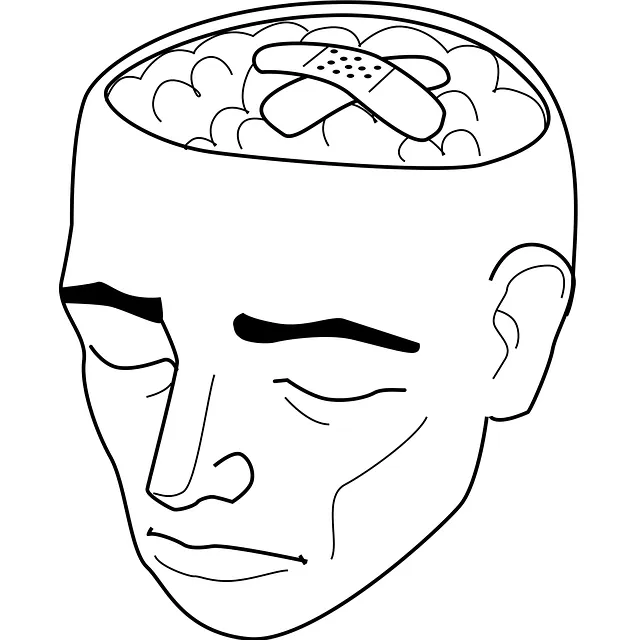Greenwood Village Kaiser Permanente behavioral health services adopt the Resilient Factors Model (RFM) to enhance mental well-being through Mind Over Matter principles and self-care routines. Their structured programs, including Mental Wellness Coaching, Self-Care Routine Development, and Social Skills Training, equip individuals with emotional regulation, communication strategies, and improved self-esteem. Using evidence-based techniques from cognitive-behavioral therapy and mindfulness, these services aim to improve overall health and happiness by fostering mental resilience for personal and professional success. Success is measured through comprehensive evaluations, showing immediate and sustained improvements in mental well-being, even during crises.
“Resilience is a cornerstone of mental well-being, especially in the context of behavioral health services. This article explores the powerful combination of RFM (Recovery, Flexibility, and Mastery) and resilience-building exercises in enhancing patient outcomes. We delve into the practical application through a case study of Greenwood Village Kaiser Permanente’s innovative program, demonstrating its positive impact on patient lives. Additionally, we provide insights on implementing effective training and measuring the long-term success of RFM interventions within behavioral health settings.”
- Understanding RFM and Its Significance in Behavioral Health
- Greenwood Village Kaiser Permanente: A Case Study on Resilience-Building Exercises
- Implementing Effective Resilience Training Programs
- Measuring Success and Long-Term Impact of RFM Interventions
Understanding RFM and Its Significance in Behavioral Health

At Greenwood Village Kaiser Permanente behavioral health services, we recognize that understanding and implementing Resilient Factors Model (RFM) is a game-changer in enhancing mental well-being. This model focuses on identifying and cultivating resilient factors within individuals, enabling them to navigate life’s challenges with greater ease. RFM goes beyond traditional therapy by empowering folks with Mind Over Matter Principles, fostering self-care routine development for better mental health, and ultimately, bolstering their capacity to bounce back from adversity.
By integrating RFM into our services, we aim to promote mental health awareness and resilience, ensuring individuals leave our programs equipped with the tools needed to thrive in today’s hustle and bustle world. This approach is particularly relevant in addressing the nuanced needs of our community, where stress, anxiety, and other mental health concerns are prevalent.
Greenwood Village Kaiser Permanente: A Case Study on Resilience-Building Exercises

Greenwood Village Kaiser Permanente stands as a compelling case study showcasing how behavioral health services can significantly enhance resilience through structured exercises. The healthcare provider has implemented innovative programs, including Mental Wellness Coaching and Self-Care Routine Development for Better Mental Health, alongside Social Skills Training. These initiatives have proven effective in empowering individuals to navigate life’s challenges with greater fortitude.
By incorporating these tailored interventions, Greenwood Village Kaiser Permanente has demonstrated a commitment to holistic well-being. The result is a supportive environment that encourages resilience, fosters mental wellness, and promotes effective coping strategies. This approach not only strengthens individuals’ ability to withstand adverse situations but also paves the way for long-term psychological flourishing.
Implementing Effective Resilience Training Programs

Implementing Effective Resilience Training Programs at Greenwood Village Kaiser Permanente behavioral health services involves a strategic approach to empowering individuals with skills that promote emotional well-being and coping mechanisms in the face of challenges. These programs are meticulously designed to address various aspects of mental resilience, including emotional regulation, communication strategies, and self-esteem improvement.
Through interactive workshops and tailored interventions, participants learn to navigate stressful situations, enhance their problem-solving abilities, and build a robust support network. The integration of evidence-based techniques from cognitive-behavioral therapy and mindfulness practices ensures that the training programs are both effective and accessible. By fostering mental resilience, these initiatives aim to equip individuals with the tools needed to thrive in their personal and professional lives, ultimately contributing to improved overall health and happiness.
Measuring Success and Long-Term Impact of RFM Interventions

Measuring success and gauging the long-term impact of RFM (Resilience, Flexibility, and Mastery) interventions is a vital aspect of behavioral health services provided by Greenwood Village Kaiser Permanente. This process involves assessing both immediate outcomes and sustained changes in individuals’ mental well-being. By employing various evaluation methods, such as self-reported surveys and clinical interviews, professionals can gain valuable insights into the effectiveness of RFM exercises.
The long-term impact extends beyond the initial intervention period, influencing an individual’s ability to navigate life’s challenges. For instance, Stress Management techniques learned through these exercises may lead to improved coping strategies, enhanced Self-Awareness, and better emotional regulation skills. This holistic approach not only benefits individuals in their day-to-day lives but also contributes to overall resilience, enabling them to thrive even during crises, as supported by the Crisis Intervention Guidance offered by Greenwood Village Kaiser Permanente’s behavioral health services.
The implementation of Resilient Factor Model (RFM) and resilience-building exercises in behavioral health services, as illustrated by the case study at Greenwood Village Kaiser Permanente, holds significant promise for enhancing patient well-being. By integrating these strategies into healthcare programs, professionals can empower individuals to navigate challenges more effectively. Effective resilience training, when measured and evaluated, demonstrates long-term positive impacts, making it a valuable tool in behavioral health management. This approach not only benefits individual patients but also contributes to the overall health and vitality of communities, particularly those like Greenwood Village Kaiser Permanente that prioritize holistic wellness.






